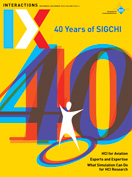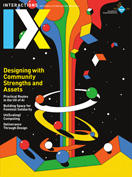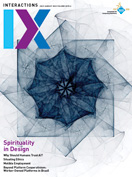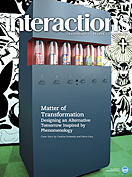Authors:
Raquel Prates, Simone Barbosa, Milene da Silveira, Clarisse de Souza, Cecília Baranauskas, Cristiano Maciel, Elizabeth Furtado, Junia Anacleto, Paulo Melo, Tuomo Kujala
Back in 1996, a small group of Brazilian Ph.D. students attended CHI as student volunteers and were encouraged to find out who else was working with HCI in Brazil. In 1997 the first efforts to organize the Brazilian HCI community came about, with significant contributions from Richard Anderson, then SIGCHI's chair of Local Chapters. In addition to identifying other people working in HCI, Brazilian HCI researchers created a webpage with their news and contact information and set up both a mailing list and a SIGCHI Prospective Local Chapter: BR-CHI. In 2000 these efforts culminated with the chartering of BR-CHI and the organization of the first national research workshop in HCI.
Sixteen years later, the community has consolidated and blossomed. The Brazilian Symposium on Human Factors in Computing Systems (IHC) is an annual event. At recent symposiums we counted some 200 participants and about 100 full paper submissions, with a 30 percent acceptance rate. In 2002 the Brazilian Computer Society created a Special Commission on HCI, and its Executive Council (CEIHC) is responsible for the quality of IHC and for promoting the HCI field in Brazil. CEIHC has assigned members of the community to lead efforts in HCI education, research, and academia-industry relations in Brazil.
Regarding HCI education, a survey was conducted in 2009, distributed through HCI and computer science discussion lists. Answers came from 91 professors teaching HCI courses in 63 universities across the country, located in 18 different states (out of 27), covering all five geographic regions of Brazil. In total, 141 HCI courses were described, 57 percent of which were offered only to undergraduate programs, 23 percent only to graduate courses, and 18 percent to both. In 2012, the survey conducted by the SIGCHI EC Education Committee [1] was translated into Portuguese and distributed in Brazil to help us all understand the different nuances in HCI education across the country and around the world. The main challenge we now face is supporting collaboration among professors to improve teaching and curricula, possibly by curating existing teaching material and sharing it among educators, as well as defining recommended syllabuses for basic and advanced courses.
As for research, IHC is where most young and senior researchers meet. Brazilian HCI research has also been published in international venues, allowing the HCI community worldwide to learn about our work. As a tribute to Brazilian scientific contributions in HCI, Clarisse de Souza was recently nominated to the CHI Academy. Several Brazilian HCI researchers are active internationally, participating in many program committees for international HCI events, journal and book editorial boards, and other community initiatives. Unfortunately, language is still a barrier for many researchers; this Portuguese-speaking community has thus not yet achieved its potential volume of publications in international venues. The greatest challenge at the moment, however, is the official graduate program evaluation policy, which is mainly quantitative and does not distinguish between different computer science sub-areas. This has had a negative impact on the HCI community, whose indices and opportunities for publication cannot fairly compete with those of other areas such as bioinformatics and artificial intelligence. To address this challenge, CEIHC has created a Scientific Profile Committee, which has mapped all papers published at IHC and relevant conferences at which Brazilian HCI researchers should consider publishing [1].
The academia-industry relationship has improved through the years, and IHC has the participation of a small but recurring group of industry representatives. Both sides aim to strengthen the bilateral ties, but finding the best way to do so is still a challenge. A number of international industrial research centers have been established in the past few years in Brazil, which may boost such collaboration.
As we celebrate our Sweet 16 with considerable success [2], we would like to share this celebration with SIGCHI, whose support has helped us to establish and consolidate the Brazilian HCI community. In 2012, SIGCHI encouraged the HCI Latin American community to organize itself on a regional basis by promoting a three-day workshop for Latin American HCI representatives. It was an invaluable opportunity for us to talk and learn more about each country's reality and to discuss how our countries could act collaboratively to strengthen HCI in the region. The continental landscape is diverse, with different challenges and opportunities; a single plan might not be suitable for all of the Latin American HCI communities. The idea is to continue the discussion through a SIGCHI community [3] and through other editions of the workshop.
1. http://www.inf.puc-rio.br/~gt-ihc/ (In Portuguese)
2. A list of the Brazilian HCI community's historical facts, as well as references to articles about challenges and achievements is available at: http://comissoes.sbc.org.br/ce-ihc/index.php?content=6
3. http://www.sigchi.org/communities/laihc
The Latin American workshop was an example of SIGCHI's attempts to consider an increasingly broad range of world regions in terms of how information technology and HCI might make the world better for all. The latest addition from Latin America to SIGCHI Chapters is Chile SIGCHI in Valparaiso, chartered in 2012. Along with CHI-Mexico, chartered in 1999, BR-CHI has served as a pioneer of HCI in Latin America and, as discussed, it has been highly successful in its endeavors.
SIGCHI congratulates BR-CHI on its 16th birthday and wishes it many more successful years to come!Tuomo Kujala
Copyright held by authors
The Digital Library is published by the Association for Computing Machinery. Copyright © 2013 ACM, Inc.







Post Comment
No Comments Found